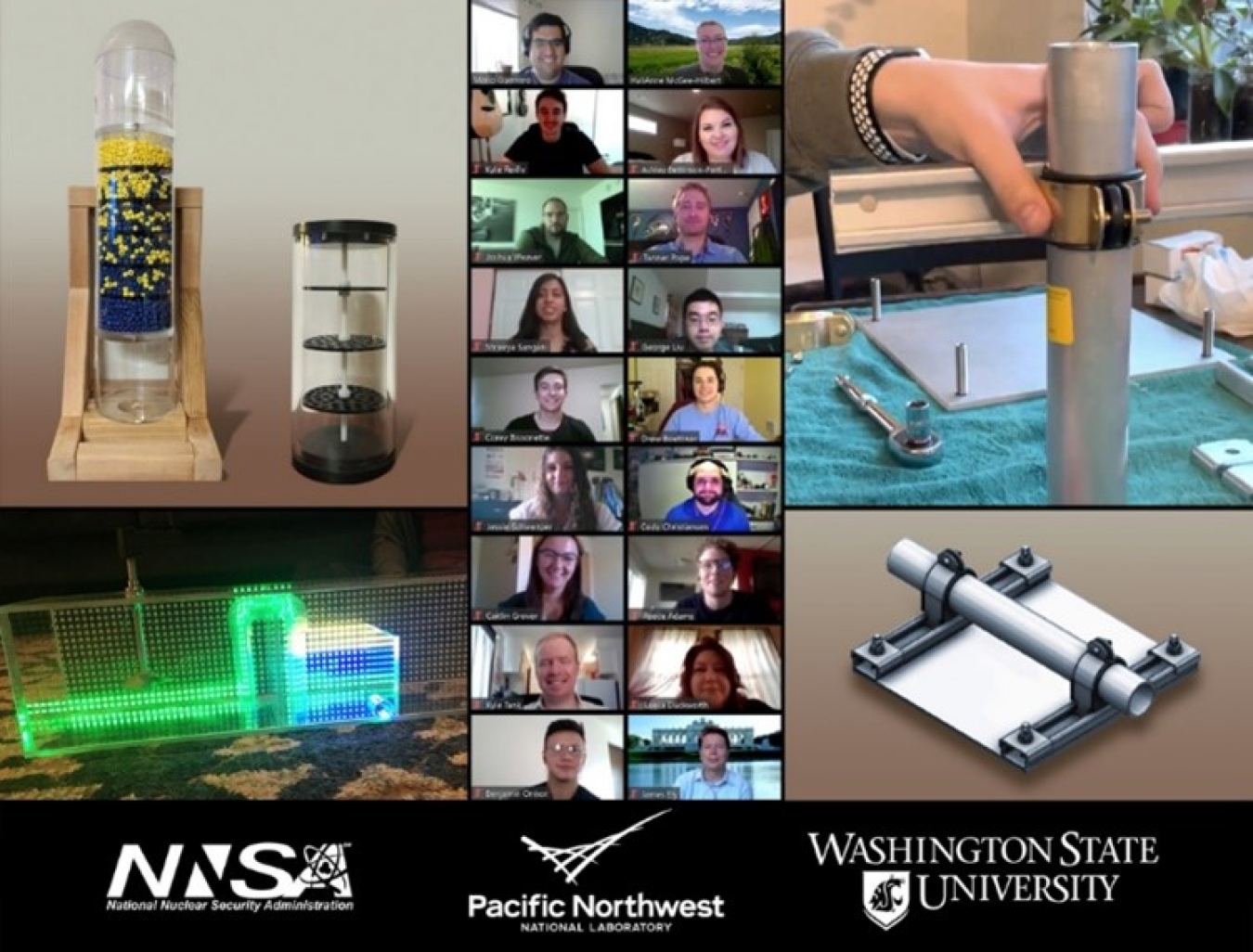Project demonstrated that creative solutions to nonproliferation problems are still possible in the virtual environment.
National Nuclear Security Administration
March 11, 2021
Supporting the nonproliferation mission often requires creative problem-solving. This WSU-PNNL safeguards program is exactly the kind of innovation we need and demonstrates that these teams are more than capable of being productive in a virtual environment.
Due to the COVID-19 pandemic, many of us are working virtually on projects that previously required in-person, hands-on participation. One such project between Washington State University (WSU) and Pacific Northwest National Laboratory (PNNL) has demonstrated that creative solutions to nonproliferation problems are still possible in the virtual environment.
In a program sponsored by NNSA’s Office of Defense Nuclear Nonproliferation, virtual teams of engineering students from WSU designed, built, and delivered prototype equipment to address challenges encountered by PNNL staff in research on nuclear safeguards.
During an online meeting in December 2020, the two teams of WSU students presented their projects to PNNL staff. One team created physical training aids for safeguards courses to demonstrate two methods of nuclear fuel reprocessing. The other developed an enrichment monitor mounting bracket that the International Atomic Energy Agency could use to help monitor uranium hexafluoride gas in enrichment facilities.
Over the course of the program, the teams worked together to overcome obstacles, such as selecting the best materials for the mounting bracket. The teams accomplished both projects on time and under budget.
“Supporting the nonproliferation mission often requires creative problem-solving,” said Kasia Mendelsohn, Acting Deputy Administrator for NNSA’s Office of Defense Nuclear Nonproliferation. “This WSU-PNNL safeguards program is exactly the kind of innovation we need and demonstrates that these teams are more than capable of being productive in a virtual environment.”

